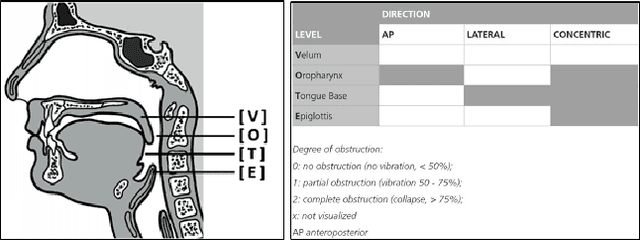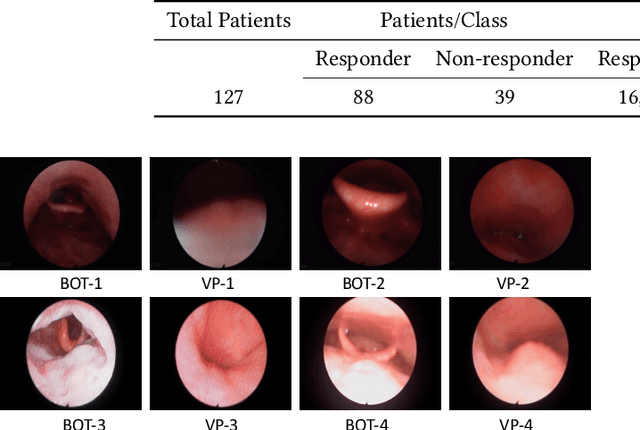Andrés M Bur
Assessing Patient Eligibility for Inspire Therapy through Machine Learning and Deep Learning Models
Feb 01, 2024



Abstract:Inspire therapy is an FDA-approved internal neurostimulation treatment for obstructive sleep apnea. However, not all patients respond to this therapy, posing a challenge even for experienced otolaryngologists to determine candidacy. This paper makes the first attempt to leverage both machine learning and deep learning techniques in discerning patient responsiveness to Inspire therapy using medical data and videos captured through Drug-Induced Sleep Endoscopy (DISE), an essential procedure for Inspire therapy. To achieve this, we gathered and annotated three datasets from 127 patients. Two of these datasets comprise endoscopic videos focused on the Base of the Tongue and Velopharynx. The third dataset composes the patient's clinical information. By utilizing these datasets, we benchmarked and compared the performance of six deep learning models and five classical machine learning algorithms. The results demonstrate the potential of employing machine learning and deep learning techniques to determine a patient's eligibility for Inspire therapy, paving the way for future advancements in this field.
 Add to Chrome
Add to Chrome Add to Firefox
Add to Firefox Add to Edge
Add to Edge